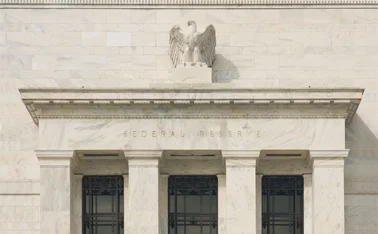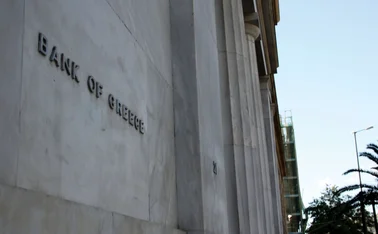
Fiscal profligacy biggest threat to central bank independence, says Dudley

Unsustainable national budgets pose "a far more important threat" to central bank independence than unconventional monetary policies, according to William Dudley, the Federal Reserve Bank of New York president.
Speaking at the Bank of Mexico's conference yesterday, Dudley said central banks' monetary policies had less bearing on their independence than the wider question of whether the fiscal authorities act in a manner that is "consistent" with the central bank's objectives.
"For example, if the budget trajectory were clearly unsustainable, then monetary policy may no longer be able to credibly act in a way that keeps inflation expectations in check," he warned.
Dudley did, however, stress that central bankers should still be "cognisant" of the threat posed by unconventional monetary policies.
Klaas Knot, the Netherlands Bank president, made a similar point in his own speech later in the day. Knot agreed that "much of the current controversy" surrounding central bank independence is "related [to] central banks' ability to engage in unconventional monetary policy".
Dudley discussed the risks surrounding the Fed's large-scale asset purchase and maturity extension programmes, and singled out two ways in which the Fed could suffer operational losses as a result of its monetary policy.
The first, he said, is if the Fed, when it begins unwinding its balance sheet, sells its assets at a price below their amortised cost.
The second scenario in which it could incur a loss, he explained, is if the Fed attempts to increase short-term market interest rates by paying a higher level of interest on its reserve balances.
"If the rise in rates were sufficiently large, the Federal Reserve's net interest margin could turn negative, resulting in losses for the Federal Reserve," Dudley said.
Dudley was broadly dismissive of both scenarios, however, arguing that although both risks are "real", neither represents a "big threat". He said the Fed was unlikely to incur an operating loss, and, even if it did, it would bypass the issue through its accounting practices.
The Federal Reserve hands all of its net income to the Treasury but, in the event of an operating loss, it ceases to pay any remittances until it has generated enough income to cover that loss. Instead, the loss is expressed as a "deferred asset" on the Fed's balance sheet.
This avoids the need for the Treasury to fund the loss, and, according to Dudley, allows the Federal Reserve to retain its budgetary independence. The risk, he said, lies in the Fed delaying remittances for a "considerable period of time".
Dudley argued that this should be considered in the context of the wider impact the Fed's unconventional monetary policy has had on the government's finances. He pointed to increased remittances in the wake of the crisis – around $80 billion each year, up from around $25 billion – and the effect of the easier financial conditions on economic activity.
"Once we take into account the broader fiscal consequences of the unconventional monetary policies put in place by the Fed, they are quite likely to cumulatively have an overall positive impact on the government budget," he said. "As a result, the use of unconventional monetary policy tools should pose no significant threat to the Fed's independence."
Klaas Knot agreed that central banks should avoid going cap in hand to government authorities where possible. While a government guarantee can protect a central bank's financial position, and consequently its credibility, the transfer creates other problems, he said.
"If the government has to invoke this guarantee, the fiscal dimension of monetary policy becomes very visible, and the previously solid line between fiscal and monetary policy will be blurred," Knot explained.
Only users who have a paid subscription or are part of a corporate subscription are able to print or copy content.
To access these options, along with all other subscription benefits, please contact info@centralbanking.com or view our subscription options here: http://subscriptions.centralbanking.com/subscribe
You are currently unable to print this content. Please contact info@centralbanking.com to find out more.
You are currently unable to copy this content. Please contact info@centralbanking.com to find out more.
Copyright Infopro Digital Limited. All rights reserved.
As outlined in our terms and conditions, https://www.infopro-digital.com/terms-and-conditions/subscriptions/ (point 2.4), printing is limited to a single copy.
If you would like to purchase additional rights please email info@centralbanking.com
Copyright Infopro Digital Limited. All rights reserved.
You may share this content using our article tools. As outlined in our terms and conditions, https://www.infopro-digital.com/terms-and-conditions/subscriptions/ (clause 2.4), an Authorised User may only make one copy of the materials for their own personal use. You must also comply with the restrictions in clause 2.5.
If you would like to purchase additional rights please email info@centralbanking.com








